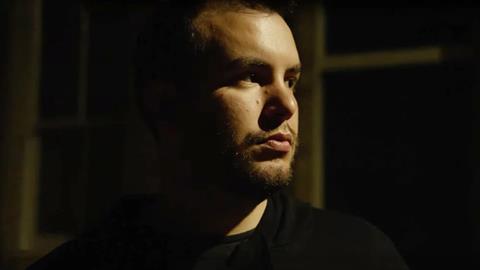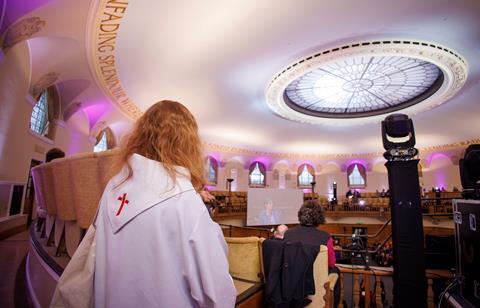For David Bennett, the Church of England’s change in position on same-sex relationships has deep and personal implications. He explains what yesterday’s ruling means for him

In the early 2000s, the gay Christian Network in the US developed various terms to describe the different positions that gay Christians take toward the complex subject of how they should live and identify.
Over the past ten years, every major denomination or tradition of Christianity has ruled mainly in favour of two groups of LGBT/same-sex attracted (SSA) people. The first is called Side A, or the progressive group who see gay marriage as compatible with God’s will and purposes.
The second is Side Y, which believes that gay identity and same-sex attraction are innately sinful or disordered. Some of these groups would embrace the idea of sexual orientation change as the norm for Christian discipleship.
What we are seeing today is the undoing of the Reformation in the Church of England
At the centre of this centrifuge of culture war positions is a small, beleaguered-but-brave group called Side B (represented by a bee emoticon on social media). We believe that gay identity, while fallen like all identities, is not essentially sinful and is to be celebrated, but that same-sex sexual lust and activity is sinful, and gay marriage is clearly unbiblical and misaligned with the created order.
We hold to a kind of queer, non-repressive celibacy or ‘mixed orientation’ marriage between one man and one woman as the normative options for gay people.
A place to call home
Until yesterday, the Church of England was the one main denomination where we had a home, and which held to something which, while deeply deficient, resembled something like a Side B view. As a group, we did not have to live under a roof which essentially rejected the nuance and depth of our convictions.
With this change, of blessing gay couples and marriages, I deeply understand the loneliness and forsakenness of Jesus. He was despised, abandoned and rejected by his own people. As a celibate gay Christian, that is what the Church of England’s actions mean for those like me. While the doctrine of marriage has not changed, we, as the Church of England, are now saying one thing with our mouths and doing another with our hands.
I sit today, crushed and in deep pain for the Church I love, and which I called a safe home
That cannot be seen as a faithfulness to God or LGBT people. Blessing one necessitates the rejection of the other, and opts against the God of scripture for the god of human experience.

Holding together
At the beginning of the Living in Love and Faith resource, Most Rev Justin Welby, Archbishop of Canterbury, calls for a solution that holds scripture, reason and tradition as our definitive authorities. It is reminiscent of Richard Hooker, the great Anglican reformer, in his famous Laws of Ecclesiastical Polity. But Hooker drew the vital distinction between adiaphora (issues of conscience and prudence, like food sacrificed to idols, where innovation is possible) and the positive command of scripture, which cannot be contradicted.
For Hooker, where scripture is clear and positive it must always be upheld as the order of the Church. Positive commands, as clear in the whole scriptural deposit, are lawful for Christians. No questions asked. A departure from them is sinful.
For Hooker, then, gay marriage is no matter of conscience but disobedience from God and how God has called us to live in Christ. What the bishops proposed departs, through blessing same-sex unions in practice and prayer, from anything that can safely be called Anglican. Neither is it an innovation which is scripturally sound in Hooker’s view. LLF has led precisely to what Hooker forswore and Archbishop Welby’s supposed intention of resisting the worldly.
Sacrificial living
Instead, I sit today, crushed and in deep pain for the Church I love, and which I called a safe home for many years. I lived sacrificially within the Church of England’s teaching and trusted its word as a celibate gay Christian. Now, that trust has been betrayed. Side B Christians like me will now be a minority, within a minority, within a minority, and must remain outside the Church’s walls with no home.
When the Church says we will be included, we must now fear a fake mutual flourishing, which has not been a huge success on the issue of women bishops. While the two matters are theologically distinct, the politics, I fear, will not be.
Caught in conflict
These words, from Oliver O’Donovan’s Resurrection and Moral Order (Apollos) feel deeply prophetic after yesterday’s synod vote:
"The conflict in which Jesus engaged and which led to his death was not the conflict of dualist myth between two independent realities, the ultimate principles of good and evil, but a conflict between the true and false forms of the one reality.
"The death of Christ shows us the outcome of the encounter between the true human life and the misshapen human life, between the order of creation as God gave it to be lived and known and the distorted and fantastic image of it in which mankind has lived. The outcome of the encounter is that the false excludes the true. The true participation of man in creation is brought abruptly to an end as the Son of man is put to death, deprived of the basic form of participation which is the precondition for other forms, his physical life.
“We should not allow the shock at this wrong outcome to be dulled by what we know of its subsequent putting-right. We confess that God reversed the crucifixion of the Son of man and vindicated the true against the false; but that does not alter the fact that the corrupted order had in itself the tendency and the capacity to destroy the uncorrupted, and so defend itself against all correction or amendment.”
What we are seeing today is the undoing of the Reformation in the Church of England, and global Protestantism, where scripture is no longer the ultimate authority for discipleship.
It might seem small, but any matter of Church order cannot contradict scripture, especially as supported by reason and tradition. The candle which Cranmer, Latimer and Ridley lit, founded on scripture’s supreme authority, grows dim today, but let it burn ever brighter in us, the faithful orthodox.
Lord, Jesus, thank you that the true, real, and uncorrupted has been vindicated by you, even if it might not be by your Church. Thank you that while the Church, in the vast majority, rejects us for political casuistry and idolatrous certainty, you uphold us with your righteous right hand, firm and celebrated in our deeper obedience and costly sacrifice.



































8 Readers' comments